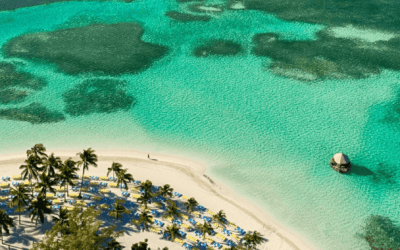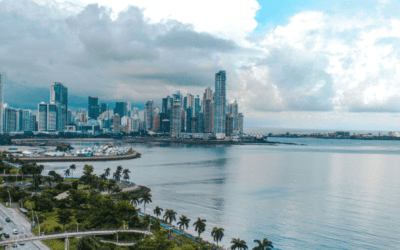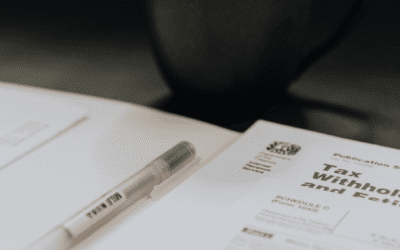When it comes to opening a bank account, throwing in the word “offshore” can make people imagine some great level of mysticism. As if there’s some incredibly complex structure out there for going offshore.
But the reality around offshore banking is that it really isn’t that much different from banking onshore. There are a few common challenges when trying to open offshore accounts. Issues that, with the right preparation, can easily be avoided.
In this article, we’ll talk over the specifics you need to know to open an offshore bank account in almost any situation. Find out how we create bespoke strategies to legally reduce your tax bills, diversify and protect your assets, and maximize your freedom here.
Offshore Bank Expectations
There are many different types of offshore banks and several different ways to go about opening them. Both onshore and offshore accounts can be opened by walking into a bank, downloading an app, or even doing the process through remote correspondence.
Let’s talk about physically going into a bank and opening an account. In many countries you can simply walk in. Take Georgia, for example, where you may not need an appointment or an introduction. Walk in with your passport and address and they should open an account for you.
Now, obviously some physical banks require you to have an appointment and if you’re going to be opening a private or priority account, you may well want an appointment whether they require it or not.
If you’re opening an account in a traditional offshore center like the Cayman Islands, they may not take walk-ins as a rule.
Calling first before walking in to learn the bank’s expectations and requirements for opening an account is recommended.
Find out if they accept foreigners without a residence or work permit. And if they do, find out what kind of deposit you’ll need to make. Strict Know-Your-Customer rules are causing banks in countries all around the world to crack down on the practice of opening accounts for people just visiting the country.
They don’t want to take on people they see as a risk. This is why countries like Singapore now want you to put $200,000 in rather than $1,000.
For $200,000 it’s worth the time to go through all the trouble of checking into who you are and what you’ve been up to. For $1,000, it just isn’t worth it for these banks to make sure you aren’t a risky client.
Call the bank. Figure out what’s required, what documents they want, if they accept people in your situation, and if they want you to make an appointment.
Our team has an extensive list of banks that we constantly update. That list includes information on which banks are accepting which people and what the required deposit is.
We have to do this because policies change often. Some banks will decide not to accept US or UK citizens. Some will refuse expats in general. If you work with the bank ahead of time, you’ll run into fewer problems.
How to Walk into an Offshore Bank

Once you’ve identified the country and bank that will take you, start considering how you’re going to answer their questions.
The bank will want to know where you pay tax, if you’re a US taxpayer, what you want the account for, what you plan to do with the account, and what initial deposit you’re going to make.
If you walk into a bank in Singapore and tell them you want to open an account because you heard they don’t have any taxes on their bank accounts, they won’t open an account for you.
You’ll want to look professional, unless you do, many banks aren’t going to take you. Particularly in Asia.
You’ll want to know exactly why you’re going to open the account and have all of the particulars of your situation prepared beforehand. Then, once you have yourself situated, make sure that you enter the right branch of the bank.
If you end up in some suburban branch working with someone accustomed to people bringing in checks from their construction business to deposit, there’s a chance they just won’t know what to do with you and will send you away.
We strongly recommend going to the main branch of the bank because the people who work there generally have more experience and better knowledge of bank policies.
Even then, if you do end up getting a new employee who tells you that they don’t take people in your situation, you may just need to come back at another time and deal with someone else.
How you approach the bank is going to make or break it for you. Having your address, passport, and all the details of your situation will go a long way in helping you open an offshore account.
Opening an Offshore Account Remotely
Remotely opening accounts is not something we suggest because of the Know-Your-Customer rules many banks are following. It’s just more difficult and time-consuming than physically going to a bank.
However, many people have done their own research on the offshore industry and are more interested in the remote process.
Remotely opening an account with banks in places like Belize, the Cayman Islands, Cook Islands, or Vanuatu, will involve filling out forms, preparing a notarized copy of your passport, and then sending all that documentation to the bank.
The bank then does everything you would have done in a branch, but it all happens while you’re sitting at home on your sofa. The challenge with this process is that, in many cases, it’s going to take them longer to open your account and you’re going to have to put up with higher fees.
But, it’s certainly an option if you want to save yourself the trip.
App-Based Accounts
The other remote option is FinTech solutions.
Whether it’s Neat, Revolut, Bunq, or one of the many alternatives, these app-based banks are very interesting. However, there are a few challenges that come with working through them.
Many are only open to EU citizens or residents, which excludes a very large potential audience (never mind that being an EU resident may not be the best path for someone trying to be tax-optimized.)
These apps also have some stability concerns. Don’t believe everything people are saying on this subject, but some of these accounts have closed people down. When this happens it can create a complicated and messy situation.
A lot of people like them. They’re easy to use. You can send money. Fees are lower. But opening an offshore bank account isn’t really about saving a few bucks on fees.
If you’re looking for a basic kind of offshore bank account where you can park some money, these new app-based banks could work. In most cases, you just download the app and scan in a copy of your passport.
One of the banks we tested had us do a live chat where you showed your passport along with your face. It was a difficult experience. That’s why you should always consider traditional banks where you just go in and open an account.
Conclusion
Offshore accounts in general are becoming increasingly more difficult to open and use because of government regulation on how you move your money. Governments want banks to know their customers more than ever and are requiring more information to be shared.
The end result is that many banks don’t want to go through the hassle of working with customers that are tax residents anywhere outside of the bank’s jurisdiction.
Whether you’re opening the account remotely or in person, there are plenty of hurdles you’re going to have to jump. This means that opening an offshore account will take some work and research on your side of things.
At Nomad Capitalist, we share the knowledge you need to open accounts in specific places – like in our list of the best offshore banks in 2023.
With the proper preparation, you can open an account as a part of your strategy to go where you’re treated best. To find out how we can help, get in touch here.










